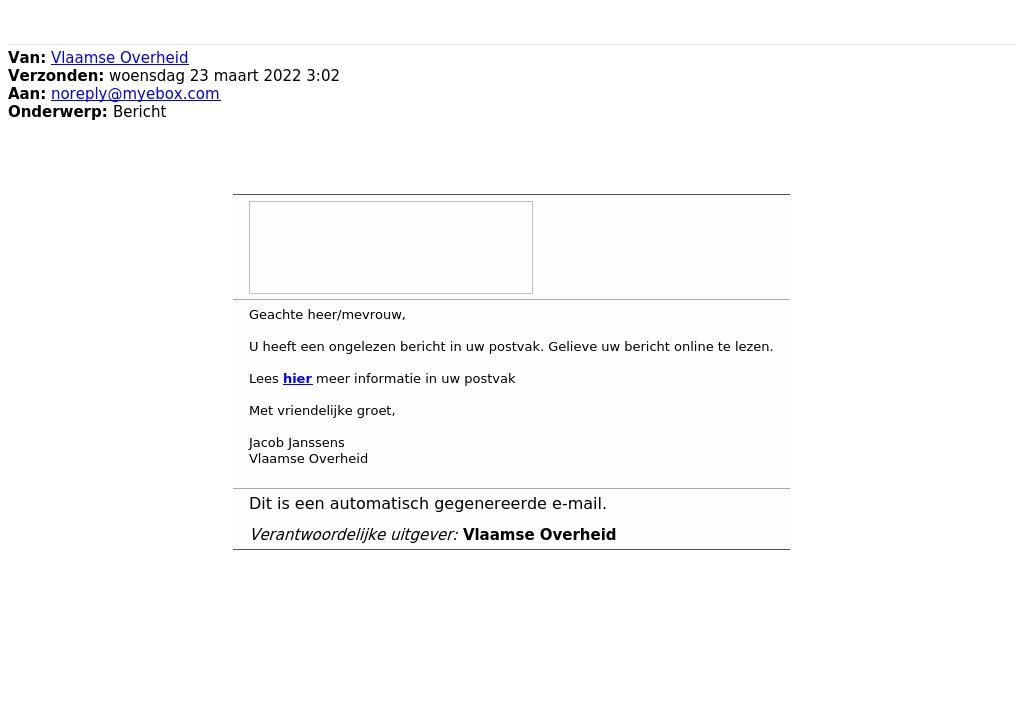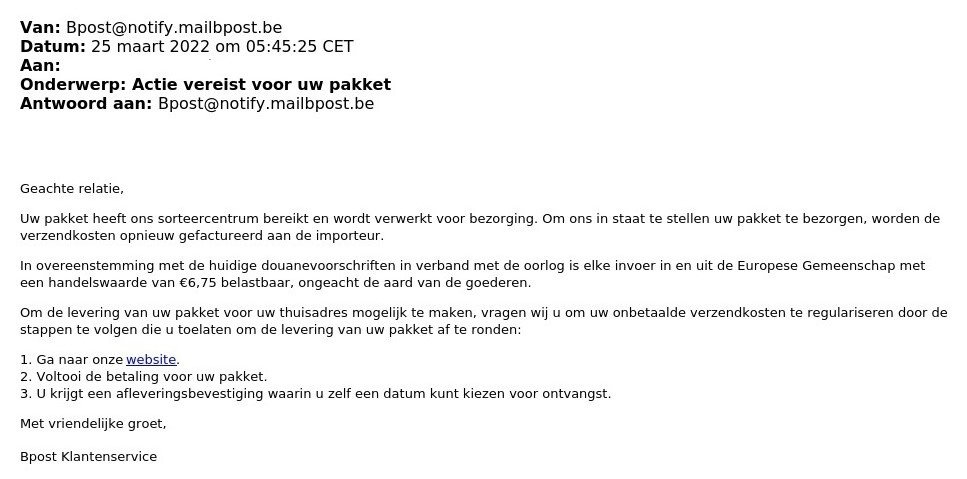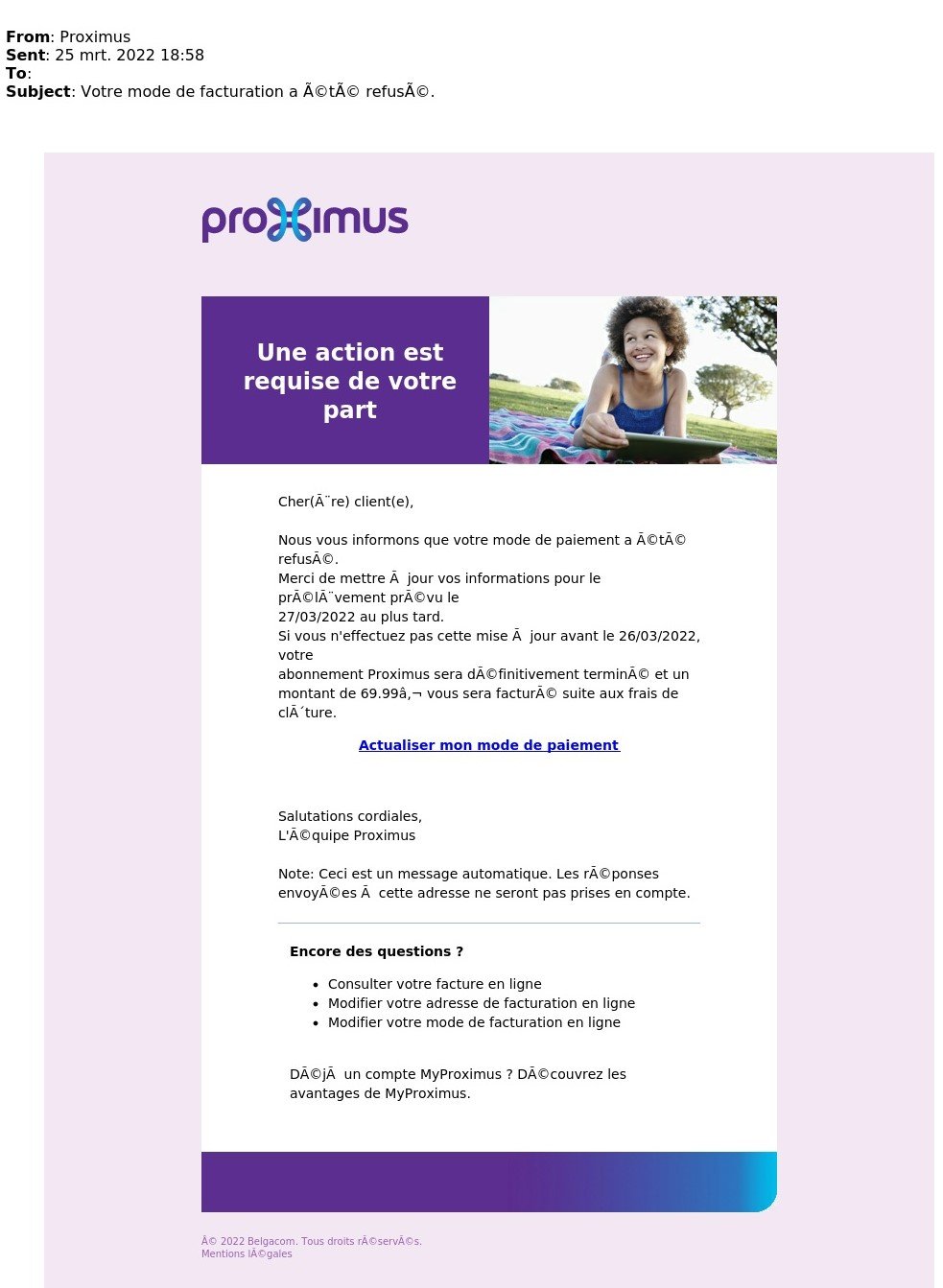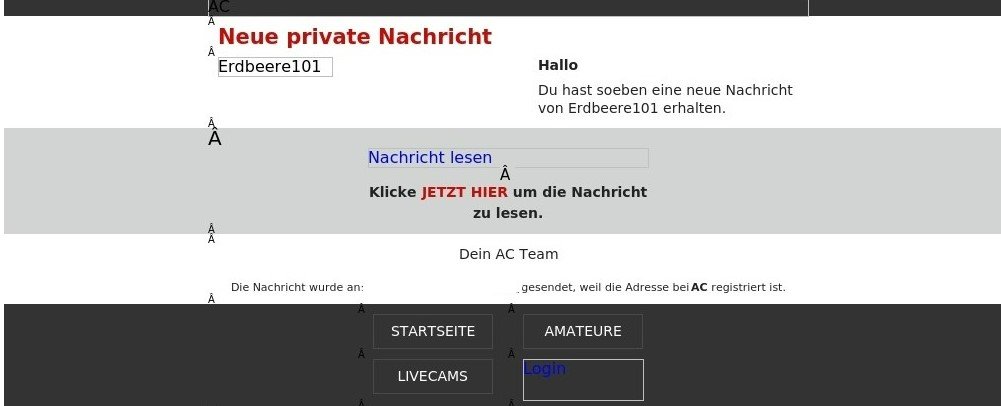The time that people blindly fell into the trap of phishers seems to be over. Last month we received an average of 14,000 messages a day in the mailbox of suspicious@safeonweb.be. That number keeps growing. It is clear that many people are no longer fooled and are sending suspicious messages to us. Thanks to these reports, we were able to block 41,000 URLs. As a fraudster, you would get discouraged. It seems that phishers have run out of inspiration to come up with original, attractive or convincing phishing mails. Judge for yourself.
Jacob Janssens of the Flemish government
This week, we received over 5500 messages with the subject 'bericht' (message). A message that presents itself as a 'message' may not immediately arouse suspicion, but it's not really inspiring either. Moreover, the 'message' seems to come from a certain Jacob Janssens of the Flemish Government. There is a good chance that a Jacob Janssen actually works in a Flemish government department. However, the chance is small that someone followed his request to click here. This message gets 0/10 for persuasiveness.

The phisher who made up the 'Notification' in the name of Belfius' Pieter Desmedt was also clearly having a bad day. 0/10 for effort. 0/10 for originality. The message was sent on a Friday. That explains a lot. We found this message 1096 times in the suspicious@safeonweb.be mailbox.

3928 attentive readers sent us a message that seemed to come from Bpost with the subject 'Actie vereidst voor uw pakket' (action required for your package). Those who took the trouble to read the message in its entirety will have been surprised by the use of the name 'European Community'. Since 2009, we have been talking about the European Union. 0/10 for general knowledge.

This week's better message is from a scammer who tried to impersonate Proximus. He or she used a credible logo and made an effort to embellish the message. But here too, 1414 people were immediately on to the scammer. This e-mail has been circulating in different variants for months. 0/10 for originality.

Remarkable this week were several obscure messages in German. The amateurish level is high, the number of victims hopefully inversely proportional. 0/10 for credibility.

Unfortunately, there are scattered people every day who do fall into the trap. There are also reports that are very convincing and difficult to debunk. That is why it is important to forward suspicious messages to suspicious@safeonweb.be at the slightest doubt. We can block fake URLs so that there are fewer victims.
